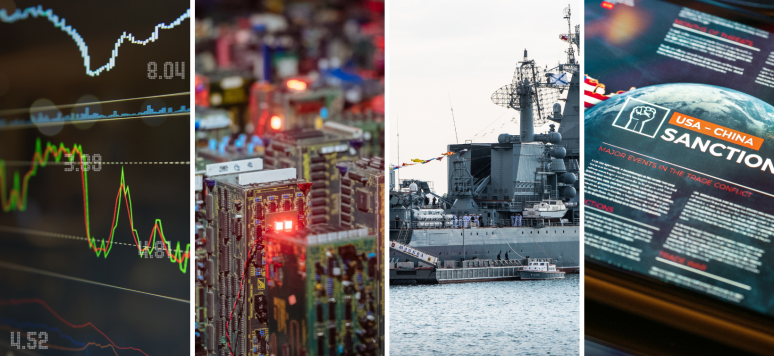This piece is a revised version of a paper presented at the conference on “New Convergences in EU-ROK Economic Security Relations”, organised in Rome on 30 January 2024 by the Istituto Affari Internazionali (IAI).

Geoeconomics and Geofinance Initiative

Export restrictions, economic and financial sanctions, politicization of monetary and financial choices, monitoring of inward or outward direct investment, exceptional customs duties, state intervention in sectors deemed (rightly or wrongly) strategic: the political vise is tightening around international economic and financial relations. The logic of mutually beneficial trade is increasingly being hijacked by states in search of strategic or security advantages, based on the control or weakening of competitors, even if this entails a cost. Economic and financial interdependence remains very close, but is increasingly constrained by power rivalries. "Geo-economics" remains, insofar as the economic logic still juxtaposes mutually beneficial exchanges with often conflicting state interests; but it is becoming more complex towards a logic that can be described as "geo-finance", marked by the simultaneous politicization of financial and information flows. In a context marked both by the digitalization of the world and the urgent need to respond to environmental degradation, the instrumentalization of interdependencies for the purposes of coercion (weaponization) is developing, while economic security is becoming an omnipresent preoccupation.
To analyze this new strategic framework, in which economic and security issues are intertwined, Ifri launches in November 2023 the Geoeconomics and Geofinance initiative. It aims to highlight the logics and their interconnections, as well as to identify and measure the changes underway, their players and their mechanisms.
Its publications, data, visualization tools, exchanges, and contributions to public debate will cover a wide range of issues, such as:
- How is the international monetary system evolving, with what consequences?
- How can political strategies affect financial activities, their logic and their players?
- How do climate policies interact with strategic concerns?
- How can we characterize strategic value chains and their main characteristics?
- Is decoupling possible (is it happening?), under what conditions and with what consequences?
Associate Director of Ifri's Geoeconomics and Geofinance initiative
The link between financial self-reliance and geopolitical power has long been debated. The unbalanced Sino-American trade relationship has created asymmetric financial ties which generate potential sources of leverage for both parties and will not quickly disappear. Absent a clarifying major...
New Chinese financial technologies, including unparalleled electronic payment systems, have so far failed to threaten U.S. financial dominance.
The combination of geopolitical tensions, climate disruption, and the growing role of finance in the economy is taking us into uncharted territory. Until recently, each of these subjects was handled separately, but they are now inextricably linked by two shared characteristics: the gravity of...
Export restrictions, economic and financial sanctions, politicization of monetary and financial choices, screening of inward and outward foreign direct investments, exceptional customs duties, and state interventions in sectors deemed strategic: the political vise is tightening around...
Aucun résultat









